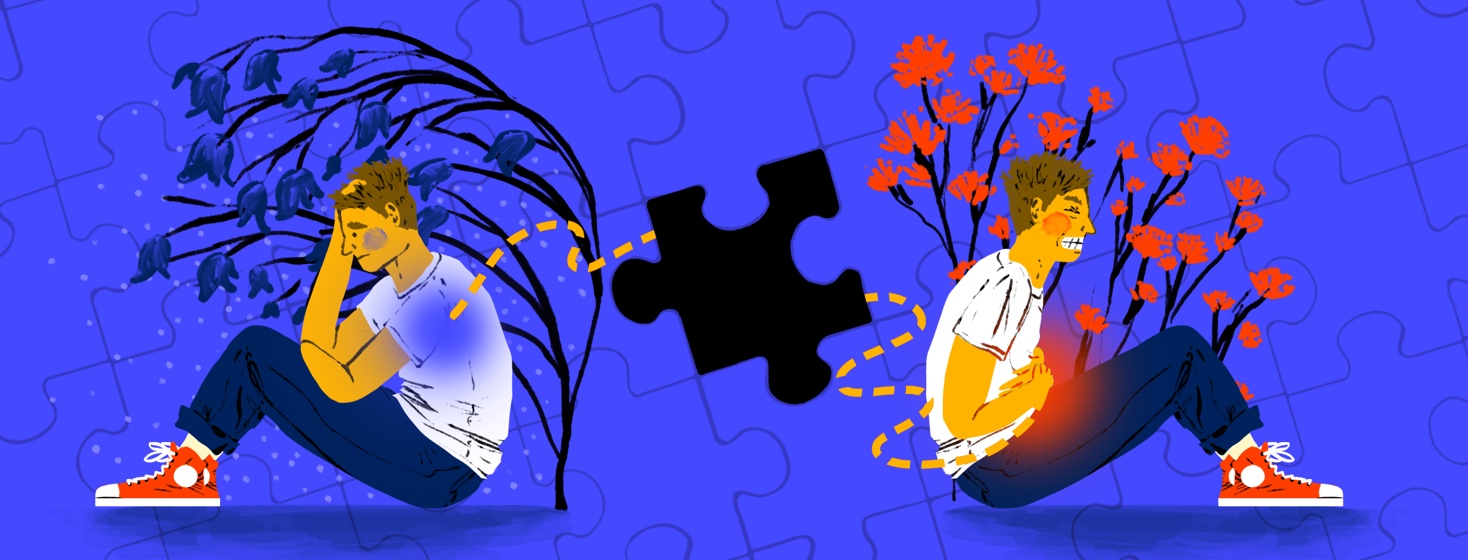Depression and IBS
I've seen a lot written (and have written posts and articles myself) about the potential connection between stress and anxiety and IBS. But what about depression and IBS? It can be difficult to discern when there is an intersection of both, which one came first – a sort of chicken and egg dilemma. Personally, I've experienced it both ways.
No stranger to depression
When I was in high school, I became very depressed, to the point where I needed to go on medication (antidepressants) in the short-term in order to overcome it. When I was depressed, I began to have more gut issues in both my upper and lower GI tracts – reflux and heartburn, as well as more bouts of diarrhea and abdominal pain. Likewise, as an adult, I have suffered through bouts of depression and noticed my IBS often worsens at this time. For instance, I often will be woken up very early in the morning, sometimes even before it is light out, having to use the bathroom. This will sometimes happen for days or weeks on end. Usually, I do not have this issue when I am in good spirits, but it definitely seems to occur when I am down or suffering a bout of depression or sadness.
Yet, as I mentioned, I have also experienced it the other way around. I first developed IBS only a few weeks into my junior year of college after transferring to a new school. I was in very high spirits and excited to begin this new chapter of my life. However, the IBS quickly became a problem and escalated to the point where I had no social life. I often felt chained to my dorm room, which was near the bathroom. I became very depressed by how IBS was dictating my life and sometimes even when I felt a little better, fear and sadness kept me from embarking on much.
Connecting the dots between IBS and depression
Sometimes anti-depressants have even been used to treat IBS, with varying levels of success (for some people it has worked wonders, others not so much). The connection between IBS and depression has been well-established, though how exactly it is connected still has not been firmly concluded. For instance, one peer-review study published just last year under the title "Irritable Bowel Syndrome and Depression: A Shared Pathogenesis" concluded that "...there is an association between IBS and depression. However, this association is multifactorial and there is a need for more research to further elucidate the association and to propose therapeutic and preventative approaches to IBS and depression."1
Another study, a meta-analysis published in 2017 looked at 27 studies that surveyed a total of 2,293 IBS patients reported that "...depression and anxiety levels to be higher in IBS patients than in healthy controls, regardless of IBS-subtype."2
So it seems that we can at least understand that there is a connection, even though the underlying reasons may be variable or not crystal clear.
Have you experienced depression as well as IBS? Which one came first? Please feel free to share your story with us below!

Join the conversation